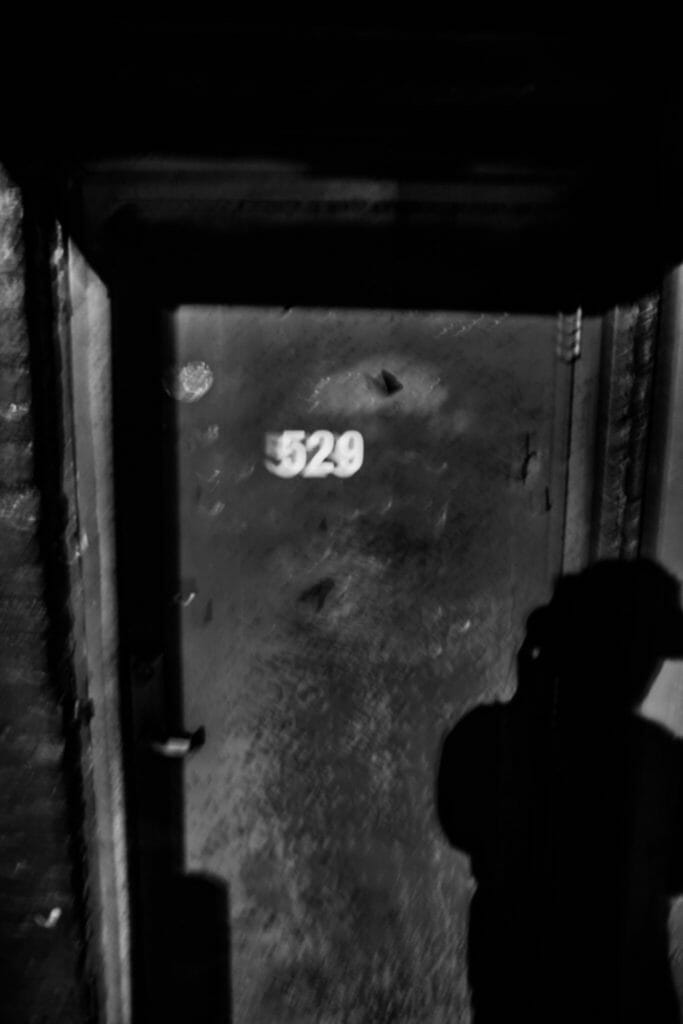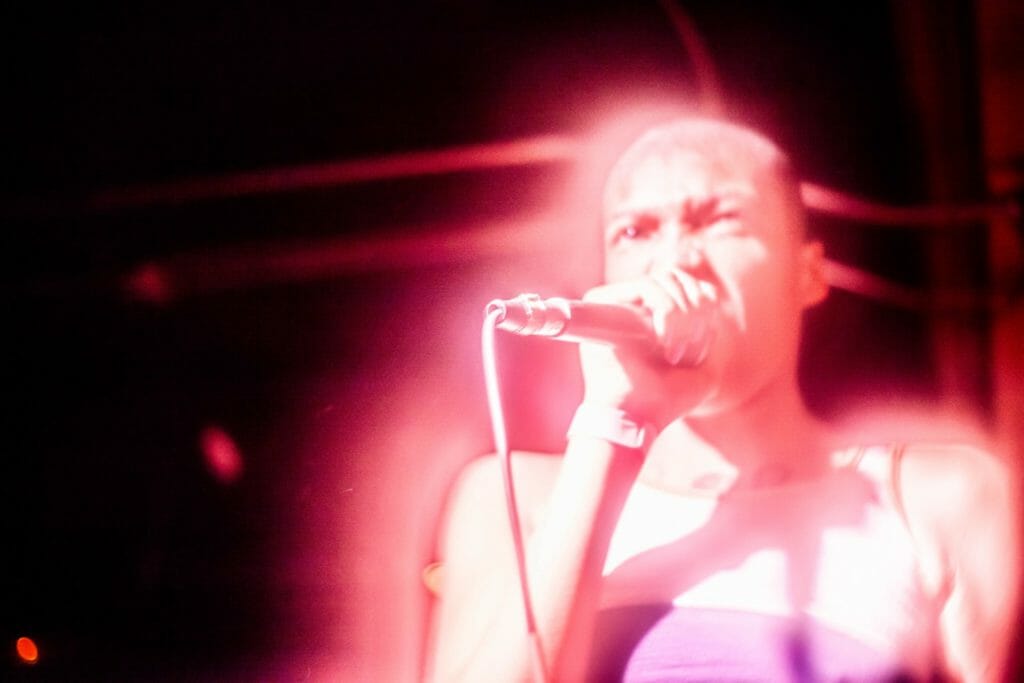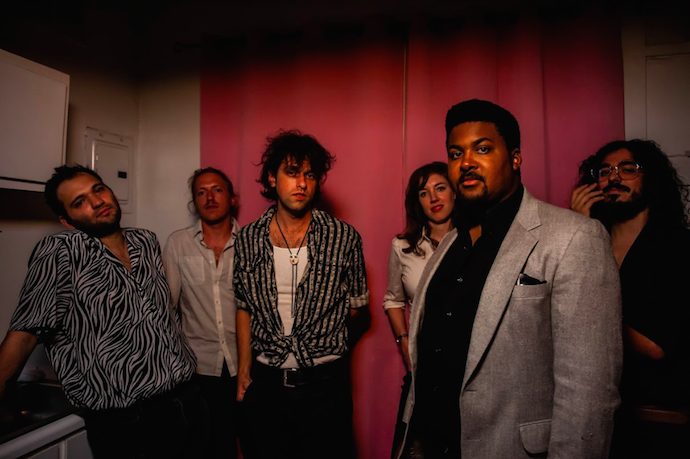
Since the coronavirus thrusted us all into an unexpected pandemic crash course, we’ve been pulled further and further away from our old realities day by day. This has prompted us all to find new ways to adjust, cope, and manage our expectations for the present and the future. Arriving at what now seems to be the most appropriate time is L.A.-based singer-songwriter A.O. Gerber’s debut album Another Place to Need, out today via Hand in Hive/Copper Mouth Records.
“To me, this record is about fantasy and loneliness,” explains Gerber in an official artist statement. “And about how living in the fiction of your own head can make you lonely. It’s about the impossible struggle of trying to reach toward an intangible beauty and intimacy that lies just across the void. It’s about the person you see looking back at you in the mirror, and who you want them to be. It’s about the even greater divide between who you think you see and what may actually be true. It’s about your many ‘selves’—the one you are in public and the one you are at home; the ‘you’ performing in front of a crowd, and the ‘you’ alone in bed, worrying about the stupid things you said when you were out in the world. It’s about the desire for intimacy, made complicated by the fact that you don’t really know how to offer it in return.”
Gerber began writing the album’s songs over three years ago, with the production occurring in waves at Tiny Telephone in Oakland and San Francisco, peermusic in Burbank, and various home studios in California and North Carolina. Co-produced with Oakland-based singer-songwriter Madeline Kenney, Another Place to Need is a lush burst of ebullience and melancholia emerging from the doldrums of a dissociative world. Gerber’s chilling vocals, at times lilting and others emotionally blistering, merge with pop-slinging synths and brass instrumental grandeur throughout the record. The result is a piece that stands in true conviction, unflinching in its vulnerability in a way that is extremely welcomed in the stark reality we find ourselves in today.
Coming to terms with our undeniable humanness can feel warped at times, especially in the midst of a pandemic that has the world and all its industries completely shook. Another Place to Need is a perfect companion for this journey. It’s ethereal, but it’s tangible. It’s grandiose, but it’s down to earth. Here, Gerber and the album’s array of instrumentalists aptly portray the conflicting aspects of self while struggling to understand true intimacy and connection. The album’s songs come from the perspective of someone confronted with their own limitations against the clashing contrasts of reality, fantasy, and upended expectations. Surely over the past three years, there was little chance Gerber knew this would later be the experience for everybody.

Gerber grabbed our and other critics\’ attention with single “In the Morning,” a song that swells with a heavy heart, embracing the vulnerability many run from in the wake of a destructive evening or even an entire relationship. Rather than attempting to escape it, Gerber asserts the natural longing for intimacy in all its ebbs and flows that ultimately yield for no one. She arrives at a sobering thought in what is perhaps the most captivating line before the track’s build-up breaks: “Everything takes time / That’s what they say, isn’t it? / And I don’t have patience for the pain of it / Anymore.”
Undertones of Kate Bush can be heard in “Full Bloom,” with Gerber’s elusive vocals, peeks of clarinet, and jazz-inspired keys. “Tell Me” captures the underpinning malevolence of the album, grappling with the juxtaposition of reality versus fantasy when it comes to the idealizing of another person rather than seeing and accepting the person as they actually are. The song was written in a “weirdly fertile state of jealousy and reverence” after Gerber played a show with an artist whom she admired, finding herself feeling frustrated and shaken up.
“It forced up a kind of honesty that’s usually hard for me to access in my songwriting,” she recalls. “It was scary to write—scary to write about masturbation as a woman, and even scarier to write about it in a tone that isn’t jocular and a context that isn’t very self-accepting. It’s scary to admit to the dissonance that exists between self-pleasure and self-loathing—that I can simultaneously hate and love my own body, and that masturbation can be just as much about loneliness and longing as it is about sexual empowerment.”
“Every Time” strikes with subtle guitar melodies plucking amidst cascading synths before becoming completely unhinged in a fully orchestrated eruption. Moments like these contrast with the album’s more celestial and glossier segments as we hear in “Old Blue,” “Strangers,” and “Bleeders,” fully extending the idea that we can be multiple versions of ourselves at various times.
Another Place to Need is a response to the confounding states we find ourselves when longing for both connection and escape. And in the dark places we arrive at when we find there isn’t much of either, Gerber pulls through in a debut that is not an escape, but a fulfillment. Maybe the point isn’t to escape at all, but to simply be with it all. Perhaps all we need is a little salvation, which can come in quiet moments alone listening to an album or going for a drive.
We took a few extra moments to catch up with Gerber to ask how life has been since the COVID-19 crisis.
How are you doing?
I’m okay as one can be. I’m healthy; I have work, food, a place to live. I’m feeling a lot of gratitude. And it’s challenging right now to make meaning.
How has your album release been affected by all of this?
Obviously I’m not playing any of the shows we had planned. I was supposed to be in the UK right now playing Great Escape Festival and then we had some other shows planned in the States. In general, I’m much less busy—no rehearsals or release shows to prepare for—which means that there’s a sense of calm around it that I imagine there wouldn’t be otherwise. But other than that, it’s sort of hard to know how it’s impacting it, since it’s my first album release. Mostly, I think it’s my own mental space, the sobriety I feel.
How have you been spending quarantine?
I still work a day job from home. In the other hours I’m reading a lot, going on lots of long walks and runs in my neighborhood, writing essays and trying to compose, listening to a lot of podcasts and albums.
What do you think lies ahead for the music industry and independent artists?
Oh, I think it’s so hard to know. It feels like it’s going to be a long time before we’re back to any kind of normalcy, and I worry about the live venues we all love being able to survive it. To that end, I highly suggest supporting the National Independent Venue Association if you have the means right now or can give some of your time. In the end, I know artists will keep creating and finding creative ways to share that art. The whole industry side is going to have to change. I hope it’s an opportunity to do things better than we have been.
Greatest frustrations/challenges? Any silver linings?
I think it’s hard to want to be in self-promotion mode right now. That posture is always really difficult for me and especially so right now. I think a huge silver lining is slowness. For the past few years I’ve really been burning the candle at both ends. This time is allowing a lot of space for self-reflectivity.
You recently participated in a showcase hosted by Hand in Hive Records and mental health charity CALM. Can you tell us more about CALM and how you got involved with them?
CALM is an organization that works to prevent suicide in the UK, where they raise awarness and also provide a free and confidential hotline and webchat platform for people in crisis. The label I’m on, Hand In Hive, have worked with them for years. When Great Escape got cancelled this year, the guys at HIH wanted to find a way to bring together the artists that would have been playing their stage, and putting on a livestream series to support CALM felt like a great way to do that.
Any tracks on the album that resonate even more so now during the pandemic?
Tell Me deals in part with the longing involved in fantasizing about another person. When I wrote it, there was a lot of sadness in that picture, but there’s a sweetness in it to me right now, a tenderness in imagining connectivity.
We are an independent, largely volunteer-based, women-led publication that provides free coverage to our readers. If you enjoy our work and want to join our mission, donate to help us support the artists and writers who contribute to our platform.




